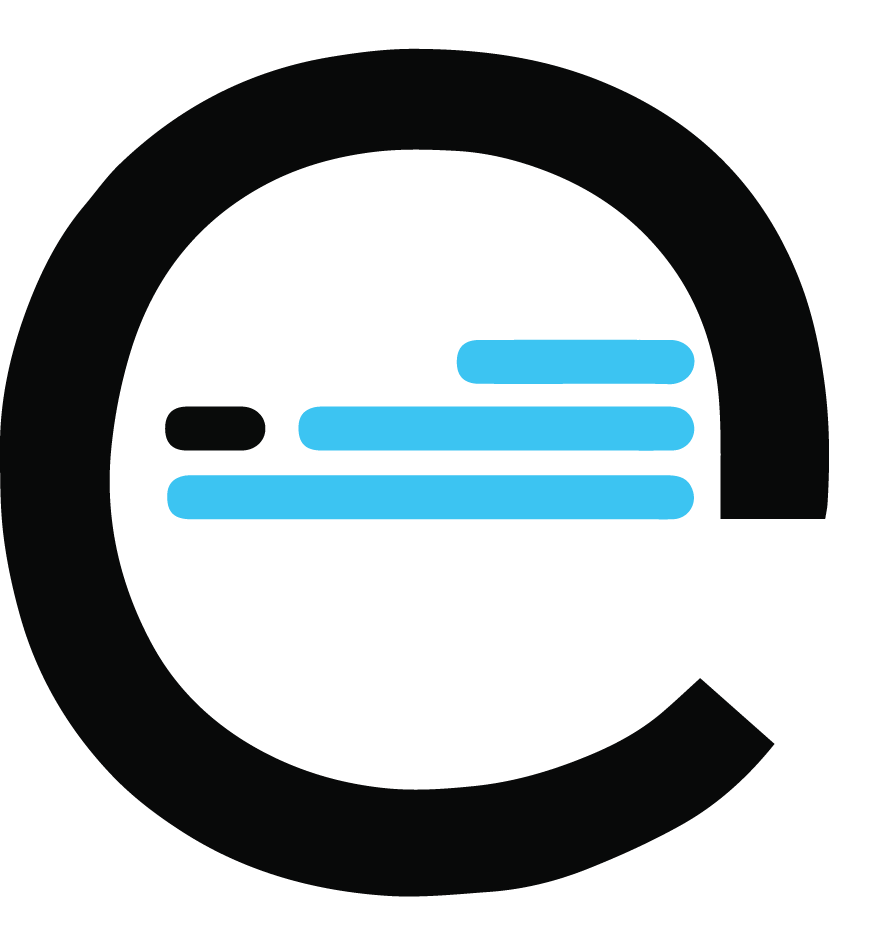Looking for the best in the house?
Entry Finance can help you find the right home loan. There’s never been a better time to talk to one of our expert mortgage brokers
Want a mortgage broker who listens to your needs?
Applying for a home loan can be a daunting experience, and we do more than get you a great interest rate. We find you the best all-round deal. Here are five ways we help you:
- We work with you to determine your needs.
- We negotiate with lenders on your behalf.
- We secure the best interest rates and loan structures available.
- We manage all the paperwork and keep you informed every step of the way.
- We meet your deadlines and manage valuations and settlement.
- Did we mention we do all this for free? That’s right, we’re able to offer our services free-of-charge because we’re paid a commission by lenders.
You don’t have to deal with the banks on your own. Let us do the legwork. Whether it’s your first home, your second home, refinancing your current home or buying an investment property we’ll look after your needs.
We’re your home loan specialists.
We team you up with the right home loan and home lender.
Find out some the home loan we offer:
We team you up with the right home loan and home lender.
Find out some the home loan we offer:
Most lenders require you to have a home loan deposit of 20%. However, there are ways to borrow 100% or $105% of the value of the property without a deposit. This is called a ‘no deposit home loan’.
Here are the ways you can borrow up to 105% of the value of the property you want to purchase:
- If your parents own a property in Australia and they’re prepared to act as your guarantor, you can borrow up to 105% of the value of the property you want to purchase.
- If you have an existing loan on another property, you may be able to use the equity in that property as a deposit for a new home loan. For example, if you have a $400,000 loan on another property and that property is valued at $600,000, you can use the $80,000 equity as a deposit. You can only use 80% of the value. E.g 80% of $600,000 is $480,000 minus your balance ($400,000) equals equity ($80,000).
If you’re able to obtain a guarantor loan (from your parents), you generally won’t need to take out Lenders Mortgage Insurance (LMI).
However, if a guarantor loan is out of the question and you need to borrow more than 80% of the purchase price of the home, you’ll likely need to pay LMI.
LMI protects the lender if you default on your loan. It’s either paid as a one-off, non-refundable premium added to your home loan or is spread out over the term of your loan. The amount of LMI is based on the size of your deposit and how much you’re borrowing.
One of our brokers can help you calculate the estimated cost of LMI for your home loan.
A guarantor loan is a home loan that uses your parents’ property as security over the loan. This means you’re using your parent’s home as your deposit. As a consequence, you don’t need a deposit to borrow 100% or even 105% of the property’s purchase price.
Guarantor loans are popular because they allow you to get into the property market sooner.
You don’t need to save a deposit, and instead of paying rent you can grow your equity. You can also consolidate smaller debts, such as credit cards, into the home loan and pay them off at a low interest home loan rate.
Lenders do have requirements for guarantors. Following is a list of general lender requirements:
Guarantors must be your parents, although close relatives have been known to be accepted by some lenders.
- Your parents must be employed, not retired.
- Your parents’ property must be in Australia.
- Your parents must have equity in their property.
Gifted deposit home loans
More than half of first home buyers receive some help from their parents or legal guardians.
Your parents can gift you with 5–15% of the purchase price of your home, without any payback requirements, and some lenders will accept this as a deposit.
Providing it’s not a loan and doesn’t have to be repaid, a gifted deposit can be provided by other people close to you as well.
The lender usually requires proof that the money is a non-repayable gift, and this can generally be provided in the form of a signed letter.
If you’re a first homeowner you may be eligible for the First Home Owner Grant (FHOG). The FHOG was introduced by the Australian Government in 2000, and is funded and administered by the states and territories.
The FHOG is a one-off grant paid to first home buyers who satisfy eligibility requirements. You can purchase either an established home, or build a new one, and you must live in it for at least 12-months.
Go to First Home Owner Grant to explore your eligibility.
Depending on the state or territory you live in, you may also be eligible for exemptions, benefits or concessions on costs such as land transfer fees (stamp duty).
You can use your FHOG as part of the deposit on your home loan. However, you will need existing savings, or a guarantor loan from your parents, as the FHOG is unlikely to be enough to cover the required deposit.
If your savings and the FHOG make up 20% of the purchase price of the property, you won’t need to take out Lenders Mortgage Insurance (LMI).
First Home Loan Deposit Scheme
This Australian Government scheme is providing 10,000 places between 1 July 2021 and 30 June 2022 in which the National Housing Finance and Investment Corporation (NHFIC) will guarantee up to 15% of the value of the property purchased through a participating lender.
The purpose of this scheme is to enable first home buyers to break into the property market without taking out LMI. If eligible for this scheme, you may be able to purchase a property with as little as 5% deposit.
For further information about this scheme, visit the First Home Loan Deposit Scheme.
If you’d like to discuss first home ownership, our mortgage brokers are home loan experts and are happy to talk to you about your needs.
Lenders Mortgage Insurance (LMI) can be waived for first home buyers if they’re participating in the First Home Loan Deposit Scheme, or are eligible for a guarantor home loan.
But there are also opportunities for professionals to acquire a low deposit home loans without attracting LMI. That’s right, some lenders offer LMI waivers to professional workers because they consider them low-risk borrowers.
Professionals who are likely to qualify for LMI waivers are doctors and other medical professionals (i.e. dentists, optometrists, pharmacists and chemists), legal professionals (i.e. lawyers, barristers and solicitors) accountants (auditors, actuaries, finance managers and chief financial officers), professional athletes, mining and energy specialists, and media and entertainment professionals.
To qualify, you’ll need to provide certification that you work in your nominated professional industry, and you’ll have to provide proof of what you earn.
There’s one other group that can obtain LMI waivers. They are buyers purchasing a Defence Housing Australia (DHA) home as an investment property.
If you’d like to know more about Waived LMI loans contact one of our home loan experts.
Low documentation loans are ideal for self-employed workers, contract workers and sole traders who don’t have conventional documentation of their income. These people may also not have a formal record of their credit history. Low doc loan applications don’t require fewer documents; they require the borrower to provide different types of documents to confirm their income and financial situation.
Examples of documents requested by lenders include, but are not limited to, the following:
- Business Activity Statements (verified by the Australian Tax Office)
- Australian Business Number and GST registration
- personal tax returns
- a letter from your accountant
- bank statements dating back at least 12 months.
- Keep in mind that low doc loans can attract a higher interest rate, and
- some lenders don’t offer these types of home loans.
The most important takeaway here is that low doc loans are subject to the same scrutiny as standard loans. The lenders and home loan specialists we work with have a legal obligation to ensure borrowers are able to manage their loan repayments. Our brokers also take their duty of care seriously.
To qualify for a self-employed loan you need to be self-employed for at least two years – preferably three. Most lenders also require financial documentation, including income tax returns, from the past two years.
Unfortunately, if you’ve been self-employed for one year or less, your chances of finding a lender are small. If you’re at this early stage of building your own business make sure you keep your financial and tax records in good order, so that when you do apply for a home loan you have all your paperwork ready to go.
When applying for a self-employed loan, the lender will expect to see some, or all, of the following documents:
- Business Activity Statements from the past two years (verified by the Australian Tax Office)
- Australian Business Number (IBN) and GST registration (including proof you’ve had an IBN for at least two years)
- personal tax returns from the past two years
- a letter from your accountant
- bank statements dating back at least 12 months.
To learn more about self-employed loans, or to find out if you qualify, contact our home loan specialists.
The way people work has been evolving in recent years. People now choose to do part-time, contract or agency work as their main job – sometimes they even have multiple part-time jobs.
They might also have several income streams, rather than working in one full-time role.
And this was all before COVID-19 changed the world and the way we manage our workplaces.
While home loan experts are recognising that work takes many forms and the conventional 9–5 job is just one of the ways people earn an income, lenders are tightening their policies in response to COVID-19.
So what do you do if you’re an agency worker, a freelancer, or a person with multiple part-time jobs? How do you persuade a home loan company, or bank, to give you a home loan?
There are two things you can do to increase your chances of securing a home loan.
- Keep your financial records in order. Keep separate records for different jobs if you work in more than one place. Create online folders for receipts, invoices and fees. Keep your tax returns and bank statements.
- Contact one of our expert mortgage brokers and discuss your eligibility for a home loan. You might be surprised at what we can do for you.
Let’s look what they fixed and variable rates are and how they affect your home loan.
A fixed rate home loan allows you to fix the mortgage repayment rate for set period of time – usually 1, 2, 3 or 5 years. This provides certainty over the fixed term and allows you to plan your budget with precision.
However, if interest rates fall, you’ll be kicking yourself because you’ll be paying more each month than the current Reserve Bank cash rate – which is reflected in a variable rate mortgage’s interest rate. Lower monthly repayments would have been all yours if you’d gone with the variable rate. On the other hand, if interest rates rise, you’ll be happy you secured the lower rate.
Variable interest rates are flexible and have more features, such as the capacity to make extra payments. But your repayment each month will depend on whether the interest rate has dropped or risen. If you find the variable rate isn’t right for you, simply notify the lender and request your interest rate be fixed.
If you’re unsure of whether to fix your home loan interest rate or go with variable, you can split your home loan into a fixed portion and a variable portion.
Before you make a decision about fixing your interest rate, chat with one of our mortgage brokers. They’re home loan experts.
Home equity loans enable you to borrow against the equity in your home. To calculate this equity, the property needs to be valued by the lender.
Let’s say you purchased your home for $450,000 five years ago, and you owe $430,000 on your mortgage. The valuer who works for your bank has valued it today at $600,000. This means you have $50,000 equity in your property.
You want to put this equity to work, so you find an apartment that’s on the market for $320,000. You intend to use the $50,000 equity in your home as a deposit on this apartment. Can you do this? In principle you can, as you clearly have 20% deposit, but to work out the details and associated costs you need to talk to a mortgage broker.
Investing in new property isn’t the only reason to access the equity in your home. You can apply for a home equity loan to renovate your home or consolidate your debt.
The important thing to remember about home equity loans is that you’re using your home as collateral on a new loan, and if you default on that loan the lender can foreclose and you’ll lose your home.
We’re home loan specialists and experts in home financing. We offer sound advice on all types of home loans. Call us today.
A construction loan, also known as a building loan, provides funds to pay your registered builder throughout each stage of the build or renovation. You can also apply for a construction loan if you’re an owner–builder (with different requirements).
Prior to loan approval a projected valuation will be carried out to ensure the cost of the completed property is realistic.
You should only need to pay interest on the part of the loan that’s drawn down. You’ll also likely need to cover any advances requested by the builder upfront, as the loan is packaged in stages, known as progressive drawdown.
The final progress payment is released after a valuer, on behalf of the lender, signs off on the construction or renovation.
To apply for a construction loan, you’ll need to include the following documents:
- copy of local council-approved or submitted plan
- signed fixed-price building contract
- quotes (if applicable)
- surveyor report (if project is over a certain amount)
- copy of builder’s risk insurance and public liability insurance
For comprehensive information, tips and advice on renovating or building a home, check out the Australian Government’s Your Home website.
We will find the right home loan and the best lender for you.
 Entry Finance
Entry Finance
Level 4/150 Albert Road, South Melbourne
4.9 28 reviews
-
Sushil Yadav ★★★★★ a month ago
Viet was very informative and gave me the right advise and also helped me choose the right loan. Kept me updated as we moved forward and he simply made Refinancing easy for me. I would highly recommend Viet to anyone. Definitely will keep … More working in future.
Thank you -
Alena Vu ★★★★★ 2 months ago
It was such a pleasure talking to Viet, well informed about the different options that were available at the time with the best rates. Explained everything to me in a way that was easy to understand and answered all my questions promtly … More and with patience. I highly recommend Viet as a mortgage broker! Will definitely let my friends and family know if they ever need a mortgage broker to go to Viet or if they need to refinance. Keep up the great work 👍 Thanks heaps Viet! -
Admin Team ★★★★★ 5 months ago
Viet and his company did great jobs always. He is my most trusted broker for years. High professional, super fast work and taking care for all details. Another loan settled within only 2 weeks. 5-star recommendation for me. -
Ksingh S ★★★★★ 6 months ago
Entry finance is simply an amazing go to firm. And Viet is an amazing man in this company who can change your life, he certainly did mine. Rest assured he will always try his best to help in the best possible way. Performance, reliability, … More prompt and transparent is the least can be described about Viet. I highly recommend him. Thanks -
Son Nguyen ★★★★★ 2 months ago
Well and truly satisfied with the service provided at Entry Finance. Viet's expertise and patience in explaining details with follow ups on every step of the way to help me save money with my loan is highly commendable. -
Michael Nguyen ★★★★★ 3 months ago
Great experience with Entry Finance. Viet Nguyen has been very professional, knowledgable, and has provided great service and advice when assisting with my finances.
Keep up the good work! -
Hao Wang ★★★★★ 3 months ago
Thank you Viet for assisting me with purchasing my first home. The process was seamless and your professional attitude and kind help is much appreciated. Looking forward to any future dealings. -
david cool ★★★★★ 6 months ago
Viet and his company did great jobs always. He is my most trusted broker for years. High professional, super fast work and taking care for all details. Another loan settled within only 2 weeks. 5-star recommendation for me. -
Anh My Tran ★★★★★ 3 months ago
Viet was great to deal with. Friendly and knowledgeable about the different options that were available to my wife and I at the time. High recommended. -
Devrim Erkan ★★★★★ 9 months ago
Viet Nguyen was awesome . He did take us through the process patiently as we had few documents missing and explained every stage of the process . He was one of the best mortgage broker we have had when it comes to communication. We recommend … More Viet and Entry finance to anyone who is looking great mortgage broker .
Thank you Viet -
Samantha Rich ★★★★★ 2 years ago
We had a wonderful experience with Viet from Entry Finance. He gave us all our options and worked through each scenario with us to get the best possible loan for our needs. He followed up with the lenders and was always available to answer … More any of our questions. A fantastic experience and we will be back next time! -
Rebecca Westerveld ★★★★★ a year ago
Entry Finance have been Absolutely Brilliant, from day one they have been so easy and stress free.
I’ve never met a more hard working broker than what I’ve met in viet. Viet has gone above and beyond to help us make our journey a successful … More one, with guiding us step by step in every progress, to explaining every situation to help us understand, and always keeping us in the loop with the updates. It’s so hard to find the right person to help you achieve your goals and who is willing to put in that extra effort even in those though situations. These guys are AMAZING and we are so grateful. I couldn’t Recommend Viet High enough.
Thank you 🙏 -
Health Froth ★★★★★ 2 years ago
Very happy with Viet and Entry Finance. I did a re-finance and was a bit complicated due to being a contractor, Viet got everything across the line. Very impressed with his responsiveness and after hours calls. Recommend them highly. Thank … More you Viet. -
James Ravensdale ★★★★★ a year ago
Fantastic. Viet was attentive, patient and best of all he saved us a lot of money. Highly recommended. -
Adam Pirrie ★★★★★ a year ago
Great experience. Viet was very diligent and was always working on my behalf with the bank. I will definitely be using this company again. Cannot recommend more highly. -
son vu ★★★★★ 2 years ago
Viet has guided me through the whole process and answered to all my queries and questions in a prompt manner. He is willingly to go above and beyond to find the best lenders and interest rates catered to my specific needs (received cash … More back bonus etc). An excellent broker and much recommended for his professional services! -
REMUS VANRDINE ★★★★★ a year ago
Very helpful and very good service -
Yunzhu Lu ★★★★★ a year ago
Good services and fast loan approval. Thanks Viet -
Alex Graca ★★★★★ 2 years ago
Amazing! Great communication! Was a first home buyer and the experience was very smooth in all aspects! Very grateful -
Uyen Khong ★★★★★ a year ago
Viet is a very nice, helpful and professional broker. -
Ken ★★★★★ 2 years ago
Highly recommended this broker. Good communication. Result driven. Easy to deal with. -
Dieu Khong ★★★★★ 2 years ago
Viet is excellent finance officer for customer services, care and follow up all works from A to Z.
Thanks Viet and keep doing a good jobs -
Alex Tran ★★★★★ 3 years ago
Been dealing with a gentleman named Viet for a refinance of my mortgage and so far no issues. I've had to rearrage some last minute appointments due to work commitments and he was more than happy to accommodate. Shall edit/update review … More once deal has finalized. -
Nghia Nguyen ★★★★★ 3 years ago
Videos don’t lie. See what Michael Nguyen has to say about our mortgage broking services. Need to find cheaper interest rates? Contact us today.

Here are four ways Entry Finance
helps you save money
- We never charge a fee for our services, instead we receive commission from the mortgage lender.
- We know the banks and lenders that will provide the best deal for your unique situation.
- We negotiate with banks and lenders to get you the best deal possible.
- Your home loan experience is stress-free because we do all the footwork.
- Our mortgage brokers are experienced, qualified and fully accredited.
What is a mortgage broker?
Think of a mortgage broker as go-between. They liaise between you and the lender, usually a bank, to organise the ideal home loan for you.
How do mortgage brokers get paid?
Usually lenders, such as banks, pay the mortgage broker a commission, or a fee, when they secure a loan for a client.
How do I know if my mortgage broker is licensed?
To provide credit advice, a mortgage broker must be licensed. Entry Finance is registered on the Australian Government’s ASIC Connect Credit Representative Register, licence number: 524998.
Let us become your personal finance manager
Here are the ways we can help you:
- Look at ways to make your home equity work for you.
- Tailor your home loan to suit your personal financial situation.
- Provide ongoing assistance with loan features, options, fees, charges and repayment options.
- We’re your home loan experts when you’re ready to grow your property portfolio.

Over 30 leading lenders. We will find the right one for you.
Buying a new home? Find out what you can afford

Let us help
You’ll wonder how you ever got along without us!
Email: info@entryfinance.com.au
Phone: 1300 468 419




